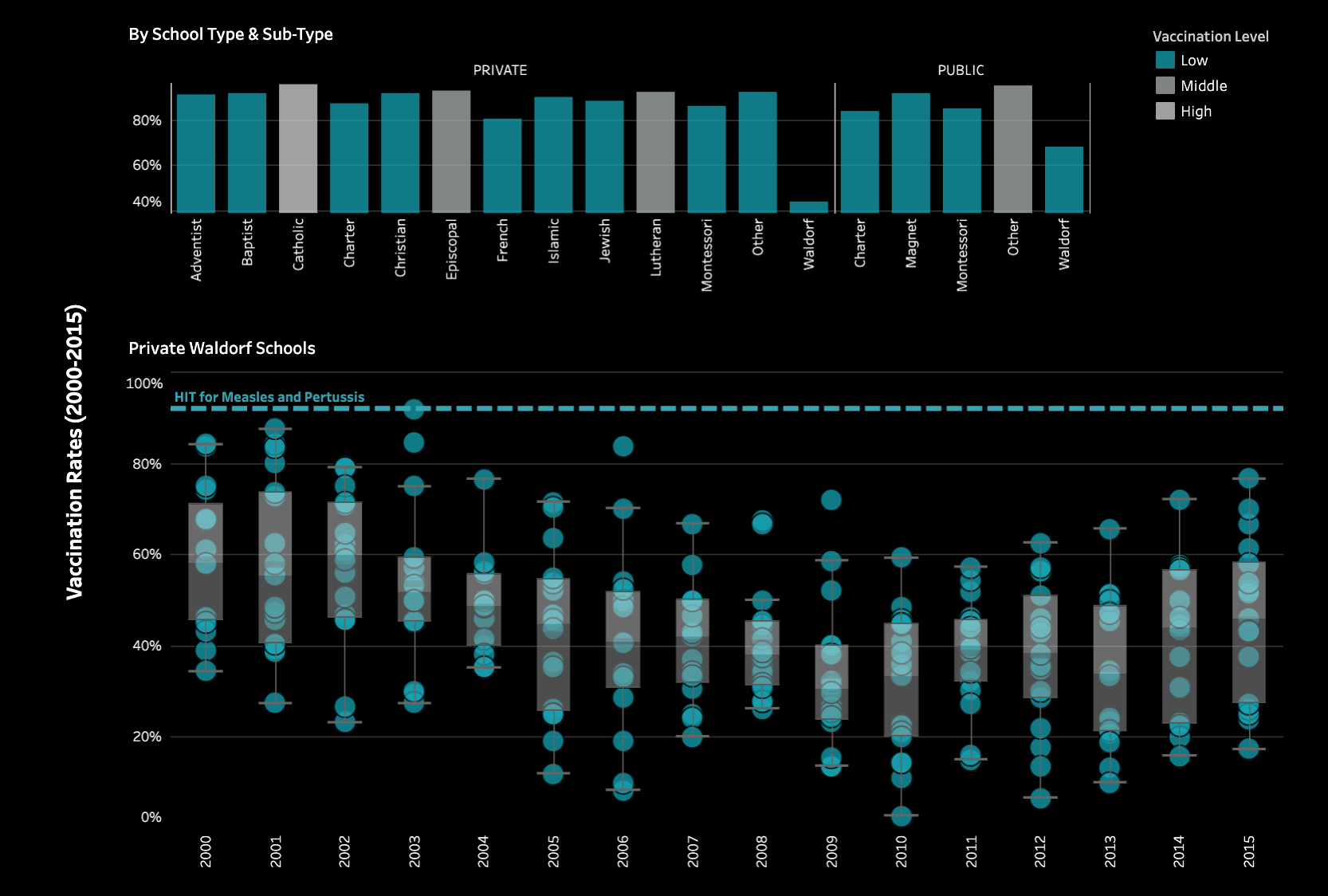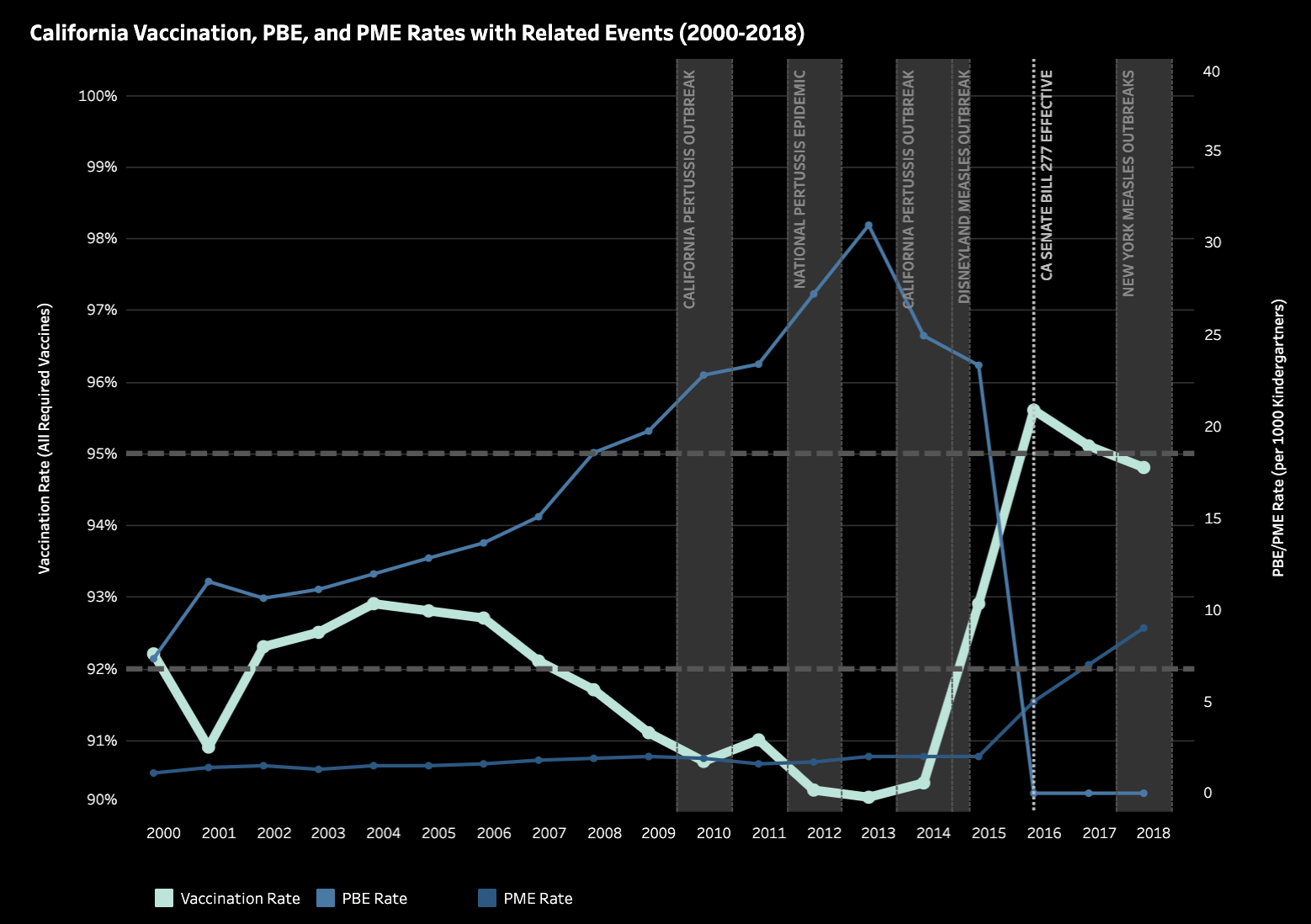who are california's anti-vaxxers?
uc berkeley | data visualization and communication
Contributors: Allison Godfrey and Anna Jacobson
Project Description
A data visualization project exploring anti-vaccination behaviors in California from 2000 to 2015.
See the Visual Essay and the
Data Dashboard
Skills
Data Visualization, Written Communication, Web Design, Data Cleansing
Tools
Tableau, HTML/CSS, JavaScript, CodePen, Flask
Motivation
Vaccinations provide people the ability to develop immunity to particular diseases. When the majority of a population is vaccinated, “herd immunity” protects those who have not been vaccinated by blocking the spread of these diseases. However, the 21st century has seen worldwide concern over the safety of the Measles/ Mumps/Rubella (MMR) vaccine and other types of vaccines - despite the lack of scientific evidence to substantiate these fears.
This trend has been called vaccine hesitancy, anti-vaccination, or “anti-vax” for short. Anti-vax refers to a refusal or reluctance to have children vaccinated despite the overwhelming evidence that vaccines are safe and effective. This hesitancy may come from a misunderstanding of the ingredients in vaccines and how they work, mistrust of doctors and pharmaceutical companies, and/or belief in the unfounded associations of vaccines with other diseases and disorders such as autism.
Anti-vaccination was identified by the World Health Organization as one of top ten global health threats of 2019. In California, an alarming 15-year-long anti-vax trend led to Senate Bill 277, signed into law in 2015, which eliminated Personal Belief Exemptions for vaccinations of school-age children. California is currently one of only three states in the US with such a law.
In this project, we visualize anti-vaccination in California in the period from 2000 through the passage of Senate Bill 277 in 2015.
Some Key Visualizations
Here are some static views from the project which illustrated some key insights.



Visual Essay Demo
Watch this video illustrating how the visual essay may be used to gain key insights.